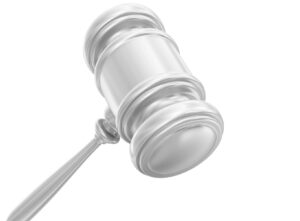 The thorny question of discipline for offensive off-campus student speech is a familiar one for most, if not all, school district administrators. The United States Supreme Court’s Mahanoy decision – finding that a suspension for off-campus social media posts violated a cheerleader’s First Amendment rights – did little to clarify the uncertainties in this area of law. On June 2, 2023, the Sixth Circuit applied the Mahanoy holding to an all-too-common scenario involving off-campus harassment and threats directed towards teachers and students. The Court’s decision in Kutchinski v. Freeland Community School District upheld the student’s suspension and offered an important roadmap for school districts considering discipline for similar off-campus conduct.
The thorny question of discipline for offensive off-campus student speech is a familiar one for most, if not all, school district administrators. The United States Supreme Court’s Mahanoy decision – finding that a suspension for off-campus social media posts violated a cheerleader’s First Amendment rights – did little to clarify the uncertainties in this area of law. On June 2, 2023, the Sixth Circuit applied the Mahanoy holding to an all-too-common scenario involving off-campus harassment and threats directed towards teachers and students. The Court’s decision in Kutchinski v. Freeland Community School District upheld the student’s suspension and offered an important roadmap for school districts considering discipline for similar off-campus conduct.
The Facts: Over the weekend and at home, a Michigan high school student created a fake Instagram account to impersonate his biology teacher. The student also granted access to two of his friends, who began posting vulgarities and violent comments about the biology teacher, several other staff members, and a student with a disability. These posts – which impersonated the biology teacher – included photos of staff members with captions about gangbanging, sexually-transmitted diseases, and strangulation threats. A post about the student with a disability was captioned “glad this sicko is out of our school.” The student and his friends tagged the teachers in the posts referencing them and accepted requests to follow the account.
On Monday morning, the account was still active, and the building principal opened an investigation. Students were whispering about the incident, multiple teachers reported disruptions, and one student reported that a teacher had been crying in class. Although the high school student deleted the account by lunchtime, he was eventually suspended for ten days. His parents challenged the discipline as violating the First Amendment and also argued that the school’s handbook was unconstitutionally vague. The trial court granted summary judgment to the school district, meaning that all claims against the school were dismissed before trial. The student and his parents appealed to the Sixth Circuit Court of Appeals.
The Holding: The Sixth Circuit affirmed the decision in favor of the school district. First, the Court noted that schools generally do not have the same authority to regulate off-campus speech as they do with speech that takes place on school grounds. Exceptions could be allowed, held the Court, for “serious or severe harassment” directed towards teachers or students, if the school had a reasonable belief that the speech would substantially disrupt schoolwork. Citing the Mahanoy decision, the Sixth Circuit emphasized that school districts must be authorized to protect everyone on their premises and therefore, must be able to prohibit threatening and harassing speech. The Court also held that the student was partially responsible for the misconduct even though his friends wrote the more offensive posts, and that the school’s rules were not unconstitutionally vague.
The Implications for Your District: In considering discipline for off-campus speech, first confirm that the conduct did not take place during an extension of the school day.
- School Day Extension: Examples of school-day extensions include speech on the bus, during online instruction at home, or as part of homework assignments. Discipline for speech during these school-day extensions is more likely to be upheld under current legal authority.
Next, consider whether the off-campus speech at issue involves serious harassment and could reasonably result in disruption of the school day:
- Serious Harassment: Do the comments involve threats of violence? Are the statements directed at particular staff or students? Is the content of the speech more than just general criticism or unpopular expressions of controversial ideas? Threatening and harassing speech directed at specific individuals is less likely to be protected by the First Amendment, particularly if it spills over and significantly disrupts the school day. This is the case even if the speech did not occur at school or during an extension of the school day.
- Material and Substantial Disruption: Is it likely that classes will be disrupted by the effects of this speech? Will administrators need to adjust standard school proceedings as a result of this conduct? Is the District able to articulate specific and reasonable concerns about likely interruptions of the school day that are more than just discomfort and unpleasantness? Discipline for off-campus speech that spills over into the school day and reasonably disrupts the school’s operation is more likely to be upheld by a reviewing court – even if the speech did not occur during the school day.
Finally, consider talking through the above elements with legal counsel. A First Amendment analysis is highly fact-specific, and a defensible decision often hinges on what may appear to be minor details and nuances. Please know that Weston Hurd’s education team is available to assist with any First Amendment and/or discipline issues your school district may encounter.
* * * *
Weston Hurd LLP attorneys regularly assist school districts in all aspects of school law. For further information please contact Miriam Fair (mfair@westonhurd.com), or any of the education law attorneys.

